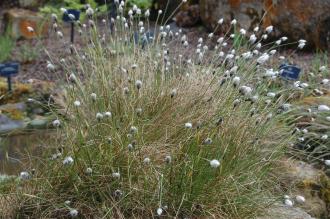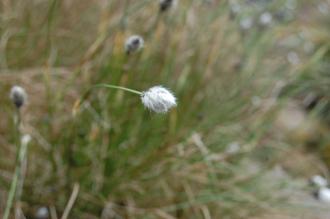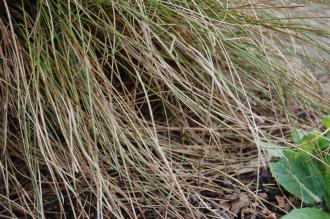
Eriophorum vaginatum (23/04/2016, Kew Gardens, London)
Position: Full sun to partial shade
Flowering period: Late spring to early summer
Soil: Wet, poorly drained
Eventual Height: 60cm
Eventual Spread: 30cm
Hardiness: 2a, 2b, 3a, 3b, 4a, 4b, 5a, 5b, 6a, 6b, 7a, 7b, 8a, 8b
Family: Cyperaceae
Eriophorum vaginatum is an evergreen herbaceous perennial with a clump forming, upright habit. Its dark green leaves are grass like and up to 10mm across. Its wind pollinated white flowers appears singularly as a masses of cotton at the ends of its leaves. Its seeds, attached to the cotton mass are dispersed by wind. Its roots emerge from rhizomes.

Eriophorum vaginatum Flower (23/04/2016, Kew Gardens, London)
Eriophorum vaginatum, commonly known as Hare’s Tail Cotton Grass, Tussock Cotton Grass, Sheathed Grass, is native to the temperate to Arctic portions of the northern hemisphere, including the UK. In its native habitat it grows in bogs and acidic wetlands.
The etymological root of the binomial name Eriophorum is derived from the Greek meaning ‘wool bearing’. Vaginatum is derived from the Latin vagina menaing ‘sheath’ and the epithet atum meaning ‘possessing’.

Eriophorum vaginatum Leaf (23/04/2016, Kew Gardens, London)
The landscape architect may find Eriophorum vaginatum useful as a native plant for planting in boggy or at the edges of water bodies.
Ecologically, Eriophorum vaginatum foliage is attractive to some herbivores.
Eriophorum vaginatum prefers moist, fertile, poorly drained soils. It prefers an acid pH of soil.
Eriophorum vaginatum requires little maintenance.

Landscape Architecture

